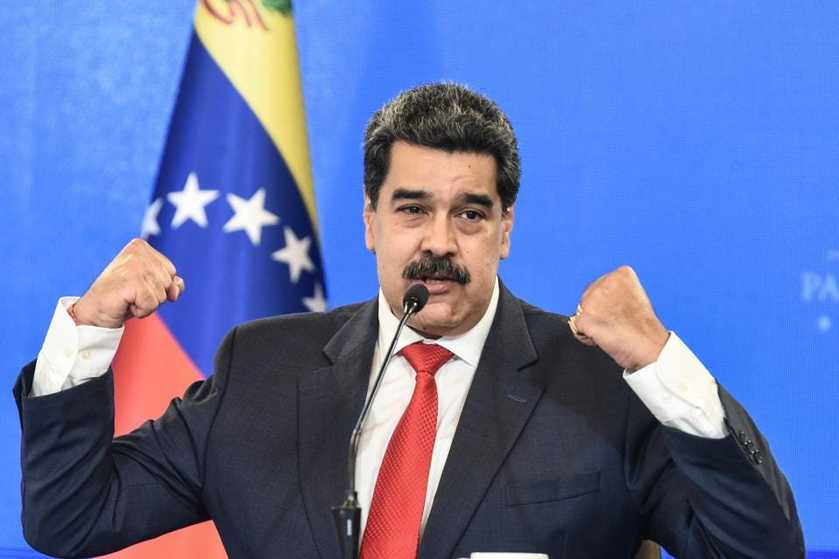Large-scale bitcoin miners have been forced to turn off their operations in Venezuela as part of the country’s nationwide crackdown on corruption.
There is anywhere from $3 billion up to $20 billion missing from Petróleos de Venezuela, S.A., the national oil and gas company. Some of Maduro's political movement (also known as Chavismo) own key leaders, like former PDVSA President Tareck Zaidan El Aissami Maddah, are under suspicion during this anti-corruption investigation. The Superintendencia Nacional de Criptoactivos, also known as SUNACRIP, is at the center of this process since it was used for liquidating PDVSA’s sales after the U.S. sanctions against the company and was the primary national institution concerned with all things related to cryptocurrency, including bitcoin mining.
Other crypto businesses, like crypto exchanges and payment platforms that were licensed under SUNACRIP’s guidance, have also paused their operations due to the "regularory context". Venezuela’s crypto industry, considered one of the world’s most robust crypto ecosystems back in 2017, has crawled to a grinding halt.
It all started when President Nicolás Maduro made the first Venezuelan national cryptocurrency in 2018, the petro token backed by Venezuelan oil and a basket of similar commodities.
The Petro And Failed Attempts At Sanctions Evasion
The Venezuelan government created the SUNACRIP shortly after issuing the petro with the goal of evading U.S. sanctions. But the U.S. issued sanctions against the petro in 2019 too, so the oil-backed cryptocurrency only works within Venezuela’s borders.
Despite the robust bitcoin mining industry scattered throughout Venezuela for the past years, and how popular cryptos are in the country, even today only Maduro’s supporters and public employees use the petro cryptocurrency. It has had little to no success, and per their investigation and Maduro’s speech broadcasted via Alberto News, when the petro failed to offer profits or utility, SUNACRIP officials turned into a mafia-style approach, keeping for them public money that was supposed to reach PDVSA’s coffers after became the non-official Venezuelan oil dealers for the world.
Venezuelan jails are now full of men like Joselit Ramírez, chairman of SUNACRIP since 2018, and Rajiv Mosqueda, the head of digital mining operations at SUNACRIP, along with other relevant officials from PDVSA and from the crypto watchdog. These arrests are part of what Maduro supporters, also known as Chavistas themselves, are calling the “PDVSA-crypto plot,” the anti-corruption investigation. These alleged criminals are accused of being part of former Vice President Tareck El Aissami’s mafia-like corruption squad. (Aissami departed his position at PDVSA after investigators arrested Ramirez and his associates). SUNACRIP was allegedly using cryptos like USDt, to complete oil sales around the world. So far, none of the accused officials have issued public statements related to any accusations.
The trouble is, the oil sales don’t match the SUNACRIP’s crypto treasury holdings or the PDVSA balance sheet. Ramírez and his associates have been investigated for their participation in these operations because there are at least $3 billion dollars worth of assets missing, potentially much more. But this isn’t the end. BitcoinBTC -1.2% miners across the country still stand dormant.
Bitcoin Mining In Venezuela
Meanwhile, social media accounts and Telegram group chats across Venezuela have been buzzing since March 2023 about government agents making unusual visits to civilian bitcoin mining facilities.
The National Anticorruption Police is trying to find links between the PDVSA-crypto plot and local bitcoin miners, while also checking that the government has thorough and up-to-date documentation and licensing arrangements with every Venezuelan bitcoin miner, as granted by SUNACRIP. Ramírez and Mosqueda were responsible for granting many of these licenses, so now many people in the bitcoin mining industry are under investigation, to see which miners are indeed compliant with the Maduro administration’s crypto policies and to clear their potential links to the corruption scheme.
There is not much public information about any of these investigations, only widespread rumors of detentions and forfeitures, but so far, there have been no documented arrests of civilian bitcoin miners, and as Teodosio Peraza, head of the bitcoin mining private company Criptominero C.A., explained to the local newspaper Yaracuy al Día after being visited, all compliance checks are a part of normal processes.
In the other hand, at least 500 SUNACRIP workers have been forced to leave their jobs during the clandestine investigations, while the few remaining petro holders are complaining via social platforms like Twitter that the petro is even less useful now, when the whole country is whispering about cryptocurrency and corruption.
It remains to be seen when, or if, Venezuelan crypto companies will return to reliable operations, especially hundreds of bitcoin miners losing income every day their mining machines remain offline. There is no clarity on what comes next for miners and companies in the once-booming Venezuelan crypto industry. Perhaps the Maduro administration will restructure SUNACRIP, or create a new regulatory body entirely.
Whatever happens, the nation’s bitcoin sector is losing out on millions of dollars worth of bitcoin business opportunities, with Venezuelan miners forced offline until this investigation is resolved.











 All while Pfizer—a company with a $2.3 billion criminal fine for fraudulent marketing, bribery, and kickbacks—was given blanket immunity from liability and billions in taxpayer dollars to produce a vaccine in record time with no long-term safety data.
All while Pfizer—a company with a $2.3 billion criminal fine for fraudulent marketing, bribery, and kickbacks—was given blanket immunity from liability and billions in taxpayer dollars to produce a vaccine in record time with no long-term safety data.
























